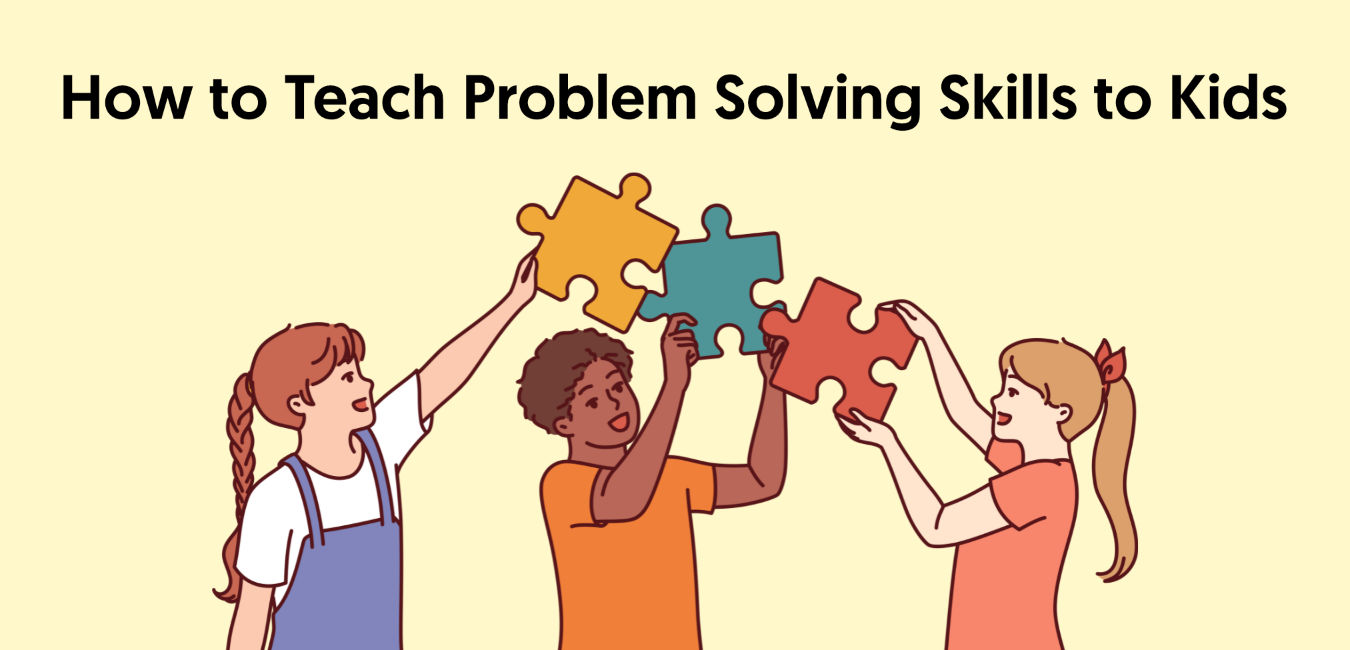How to Teach Problem-Solving Skills to Your Child?

It is critical to teach your child problem-solving skills to prepare them to face life’s challenges with a strong mindset and a positive attitude. Problem-solving skills learnt at this young age will play a fundamental role in your child’s development and help them at every stage of life.
At The HDFC school, we believe in a holistic approach to learning, rather than merely focusing on rote learning and textbook knowledge. In fact, our curriculum and pedagogy emphasise learning through problem solving and application. Students are taught how to think rather than what to think. As a result, our students were featured in the news for thinking up creative solutions to maths problems and performing innovative science experiments.
To that end, we know the importance of developing this skill set in children early on. This approach has helped us consistently rank among the best schools in Gurugram, Bengaluru and Pune.
Let’s look at why problem-solving skills are important and how you can teach this skill to your child.
Why are Problem-Solving Skills Important?
Here are some reasons why it is imperative that your child learns problem-solving skills:
It encourages critical thinking
Critical thinking is the ability to analyse a situation logically and make a decision based on the available information to rectify the situation. Bigger problems can be broken down into smaller, more manageable parts and tackled one at a time, much like a puzzle. This kind of critical thinking is what people are required to do countless times in their lives, and good problem-solving skills are essential to develop this ability.
It builds resilience in children
Children, just like adults, face challenges regularly in life. Teaching your child problem-solving skills at an early age is like giving him/her a toolkit that will help them deal with setbacks. When they know they have the ability to solve a problem, they won’t give up at the first sign of trouble.
Imagine your child wants to learn to ride a bicycle. While it is a relatively simple task, it is not easy to master it at the first attempt. Often, it is weeks or months before children are able to master the activity. If your child lacks the required problem solving skills and mentality, they may give up after the first or first few attempts, and never learn to ride a bicycle. But if they are equipped with the right skills, they’ll know that it is within their ability to learn it and do what it takes to master riding a bicycle. The same will hold true for more complicated problems they may face.
It enhances creativity
Problem-solving encourages creativity by prompting children to think outside the box and generate innovative solutions. By engaging in the creative process, and exercising the creative part of their brain, children are able to look at a problem from different perspectives and offer much better solutions. Look at every great creative mind the world has ever known. They are famous not just for being creative, but because their creativity solved a major problem for many people. Think entrepreneurs like Bill Gates and Steve Jobs, and HDFC’s very own Mr. Aditya Puri. All of them solved major problems through their creativity, which itself was born out of their problem solving skills.
It boosts academic performance
Having great problem-solving skills is closely linked to excellent academic performance, especially in STEM subjects, where complex problems need to be broken down into manageable steps and solved one by one. By breaking complex mathematical problems into smaller parts and dealing with each individually, students are able to showcase their logical reasoning as well as their problem-solving skills, resulting in high scores in such subjects.
It boosts confidence and self-esteem
If a child is successful in solving a problem or helps someone else solve a problem they are facing, it naturally boosts their self-esteem and confidence. This confidence will enable them to attempt to solve problems that are more difficult and complex, and they may well find solutions to those as well. But without that confidence, they may refrain from even attempting to solve problems. This is likely to hamper their progress in their careers down the road as well, as problem-solving skills are seen as critical to success in almost any career.
How to Develop Problem-Solving Skills in Your Child?
Encourage a Growth Mindset
You must foster a growth mindset in your child, emphasising that intelligence and problem-solving abilities can be developed through effort and practice. You must encourage them to embrace challenges and view failures as opportunities for growth rather than setbacks.
Provide Real-Life Examples
Children learn best through real-life experiences. Share your own problem-solving experiences, both successes and failures. Discuss how you approached challenges and what you learned from them. Encourage your child to share their problems and provide guidance without immediately offering solutions.
Ask Open-Ended Questions
Engage your child in open-ended conversations that stimulate critical thinking. Instead of asking yes-or-no questions, ask questions like "How do you think we can solve this problem?" or "What are the different ways to approach this situation?"
Teach the Problem-Solving Process
Introduce your child to this structured problem-solving process:
- Identify the Problem: Help your child articulate the issue they are facing. Encourage them to be specific and clear in defining the problem. Writing it down will help.
- Generate Solutions: Brainstorm potential solutions together. Encourage creativity and a wide range of ideas. Again, writing it down will help you as well as your child.
- Evaluate Solutions: Discuss the pros and cons of each solution. Teach your child to consider the consequences of each choice.
- Choose a Solution: Help your child make an informed decision by considering the best solution based on their evaluation.
- Implement the Solution: Guide your child in taking action to solve the problem. Offer support and encouragement.
- Reflect: Afterward, discuss what worked and what didn't. This reflection helps improve problem-solving skills for future challenges.
Play Problem-Solving Games
Engaging in games and puzzles that require critical thinking and logical reasoning is an enjoyable way to enhance problem-solving skills. Board games like chess, card games, Sudoku, and crosswords are excellent choices.
The HDFC school adopted game-based learning. One such example is Minecraft education where class 5 to class 11 are engaged with creating projects using Minecraft.
Read and Discuss Stories
Reading books with your child that feature characters who face and overcome challenges can be a powerful teaching tool. After reading, discuss the characters' problem-solving strategies and how they relate to real-life situations.
Provide Autonomy
Allow your child to make age-appropriate decisions and solve problems independently. Start with small choices and gradually increase the complexity as they grow and develop their skills.
Encourage Collaborative Problem Solving
Encourage group activities and collaborative problem-solving with peers. This helps children to consider multiple perspectives and negotiate solutions.
Embrace Failure as a Learning Opportunity
Teach your child that mistakes are a natural part of the problem-solving process. When they encounter setbacks, emphasise the importance of learning from them and trying again.
Be Patient and Supportive
Lastly, be patient and supportive throughout your child's problem-solving journey. Celebrate their successes, no matter how small, and provide reassurance when they face difficulties.
Conclusion
Teaching problem-solving skills to your child is a long-term investment in their future success and well-being. By fostering a growth mindset, providing real-life examples, asking open-ended questions, and guiding them through a structured problem-solving process, you can empower your child to navigate life's challenges with confidence and resilience. Remember that nurturing these skills takes time, so be patient and continue to support your child as they develop their problem-solving abilities.
At The HDFC School, we believe that in this day and age, it is essential for schools to integrate teaching and learning according to the modern world and engage students in learning science, art, mathematics, language, and social studies, while they go about solving real-life problems. This can be achieved through project-based learning as it develops skills like creativity, critical thinking, problem-solving, decision-making and reasoning.
